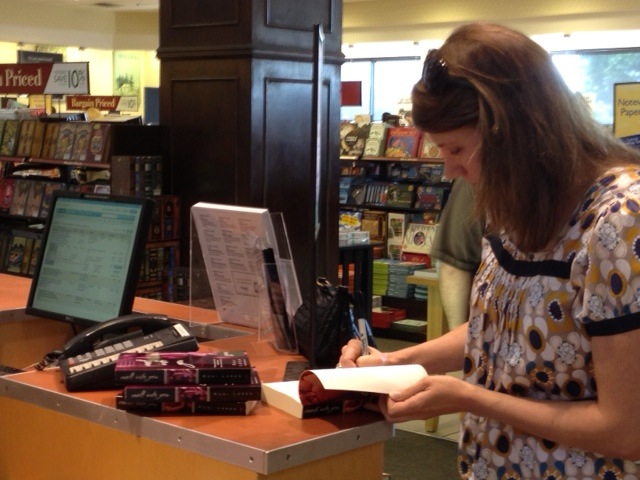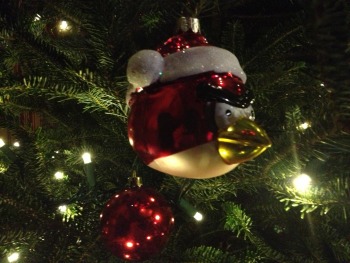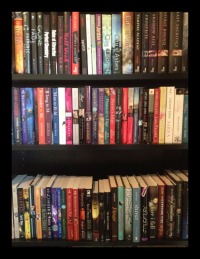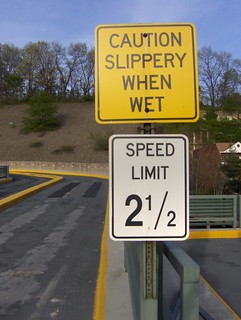 Signing books at the B&NIn a few weeks, my third print book, FALL INTO YOU, will hit shelves (also CRASH INTO YOU and MELT INTO YOU will debut in print in the UK.) This will all be happening almost a year to the day from when CRASH INTO YOU first released. Last year at this time, I was frantically preparing for my debut, unsure but totally excited by what the year would bring. What exactly would it feel like for a dream to come true?
Signing books at the B&NIn a few weeks, my third print book, FALL INTO YOU, will hit shelves (also CRASH INTO YOU and MELT INTO YOU will debut in print in the UK.) This will all be happening almost a year to the day from when CRASH INTO YOU first released. Last year at this time, I was frantically preparing for my debut, unsure but totally excited by what the year would bring. What exactly would it feel like for a dream to come true?
Well, I can tell you, it's been fantastic. A weird journey of super exciting jump-up-and-down kinds of days, days where I questioned it all (like, yanno, my ability to put words together and make any kind of sense), and every kind of emotion in between. It's a cliche, but the whole roller-coaster analogy really is apropos here.
So I thought I'd look back over the year and share what I've learned along the way. (And btw, this is coming from a traditional publishing perspective since that is my experience, so not all of it may apply if you're on a different publishing path.)
What I've Learned Year One:
1. Working under a deadline is intense and a completely different writing experience.
Doesn't matter if you've used self-imposed deadlines in the past like NaNo. That's good practice, but having people counting on you and a legal contract make things totally different stress wise. And sometimes every month is Nano. I wrote 95k in two months this year and have to write another 50k in the next 6 weeks. I've learned to write faster and have "trained up" because of it. But I won't lie, earlier this year, the first deadline book locked up my creativity because I was panicking. I had to learn to work through it. No putting things to the side until inspiration strikes. You have to go hunting for the muse with a stick.
2. Some reviews will tear you open and spit on your self-esteem if you let them.
Learned this the hard way. When CRASH came out, I got probably 97% positive reviews. But it was that one or two that were particularly biting and/or personal that crushed me. Yes, I'd been shredded by crit partners before. Yes, I'd gone through tough revisions with my agent and editor. I thought I had tough skin. Nope. Reviews can eff with you if you let them. I don't know if there's a way to prepare for this. It may be one of those things you just have to go through (because who is going to resist reading reviews on their very first book.) But it took me a while to figure out how to deal with these. My skin *is* tougher now. Doesn't mean a bad review won't sting, but they no longer make me question my ability to write or make me so angry that it ruins my whole day. If you have a book coming out, I talked about The 5 Emotional Stages of a Book Launch and I think those stages hold true for most of us.
3. The BIG BAD publisher is not your enemy. Surprise, they really want you to do well, too. Duh.
I get so tired of seeing people bash the big publishers as if they're enemies to writers. This hasn't been my experience. My editor has been lovely, supportive, open-minded, and accessible. She wants my books to do well. She's excited about my series. Yes, publishers--all publishers--are a business, and I know that if my sales don't hold up, they won't keep buying my books. But that's just business.
4. Everything is REALLY slow until it's breakneck fast.
Patience is the name of the game. Hurry up and wait, hurry up and wait. You won't hear anything for months, then you'll have a pile of copyedits to do in a week, back cover copy to rewrite, and a new book due. It's one of those things where you have to learn to go with the flow.
5. You don't know your sales numbers...no really, you don't.
People are prone to asking how the books are selling. Frankly, I don't have a specific answer. I only get an impression. Bookscan numbers only capture 50-70% of print sales, so it's a guess at best. And ebooks aren't captured at all, so all you can do is watch your rankings on Amazon and B&N for that. Yes, you get royalty statements about 8, yes, 8, months after your book comes out. But they are not so easy to read since there are things like returns and such factored in. And I won't lie, it's hard not to know specific numbers for so long. It drives my obsessive brain a little crazy.
6. You are now Professional Author first, and you can't speak as freely as you're sometimes tempted to.
For those of us in the blogosphere before we're published, we're used to chatting pretty freely. But once you're published (and really even before) you have to be aware that you are now a public figure (even if only ten people have read your book so far, lol.) You are a brand. How do you want that to be perceived?
Another aspect of this is that you are now Author first, Reader second. This has been a tough one for me because, of course, I was a reader before I was ever a writer. But being published changes this. You are seen as something different in reader/reviewer forums (i.e. you're not to be trusted because you're now kind of like the principal listening in on student conversations). And now when you review books publicly, you're kind of walking through a minefield. Review them positively, and people assume you're doing a favor for an author friend. Review them negatively and you might burn a bridge with another author. I've chosen to only publicly review books that I loved (and FTR, I would never give something a good review if I didn't like the book, even if I knew the author.) If I don't love a book, I keep my opinion to myself. And that is HARD because I like discussing books with others. But it's not worth the drama.
7. Be careful complaining publicly even when the job gets tough.
Complain about how hard deadlines are, you'll get a slew of aspiring writers with "I wish I had deadlines like that" comments. When you're published, you're seen as living the dream to those who have the same goal. And you are. That doesn't mean the dream isn't a JOB that has some really tough and stressful moments. But complaining about them makes you look ungrateful for what you have. Vent to your friends who are in the same boat as you and who understand.
8. Here there be green-eyed monsters.
Jealousy. It's ugly. It's inevitable. At some point in your journey, you'll find yourself looking to other authors who maybe are similar to you and see that they're getting (insert thing to be jealous of)--more attention, more sales, bigger advances, more buzz, more swag, whatever. Get over it. Every writer's journey is different, and sometimes all those things that look so bright and shiny aren't all they're cracked up to be. For instance, that writer who got the giant advance, now has a giant advance to earn out. If they don't, they won't get another contract. But maybe you had less sales and a lower advance, but you earned out. Now you have more book deals and time to grow a readership. Be thankful for what you have. Strive to get what you want.
9. Marketing is a mysterious, ever-changing challenge.
I nearly killed myself with that first blog tour. Did all those guest posts, interviews, contests make a difference? No one really knows. My gut says--meh, not that much. And all that touring shut down my creativity and left me late on my next book deadline. Now I've trimmed down my launches. I do review-only tours where I send out the books for reviews but it doesn't require me to do a post. I do think reviews sell books--even if it's on a small scale. I also do one-off guest spots and interviews on reader-targeted sites.
Does blogging/social media sell my books? Yes. On a big scale? Probably not. But I know anecdotally that many people who have tried my books have tried them because they got to know me online first. I've built relationships and friendships and I think that beats traditional marketing any day.
10. Nothing is guaranteed. Getting a 2nd book deal is sometimes harder than the first.
I've been lucky. Since my first two-book deal, I've sold four more books, a novella, and an e-serial. I'm eternally grateful that readers are buying my books and are allowing me to continue my series. But I know more than a few author friends of mine who had fantastic books but didn't get that next deal for sales reasons. And those decisions are made early. Writers often don't get much time to prove their sales.
11. For most of us, money doesn't roll in anytime soon.
Money is sloooooooow. Payments are few and far between during that first year. Don't quit your day job when you get a publishing deal. Well, unless you get E.L. James kind of money or something.
12. I have more control over the details than I imagined.
I'd heard the horror stories of having no control once you sign a publishing contract. That has not been my experience. Any edits I don't agree with, I can discuss with my editor. If I don't like the back cover copy, I can rewrite it completely. If the copy editor does something that changes my voice, I change it back. The only thing I don't get much control over is the cover. I can give input for that, and some things have been changed, but usually it's just tweaks.
13. Having a few good writer friends who you can say anything to (privately) is priceless and sanity-saving.
Make sure you have these, seriously. And it's good to get to know a few other published authors or reach out to people who are debuting with you so you can vent about specific publishing things. *waves to Julie Cross*
14. Write one book a year? Two books a year? Yeah, try 3-4.
Depending on your genre, the expectations for how much you write in a year are changing. Will your publisher MAKE you write more books than you want to? No. But the writers who can be more prolific are going to build an audience faster, get the opportunity at special things like anthologies or new formats first, and get more deals.
15. Realizing I can't do it all.
For those of you who have followed me for a while, you know I was a blogging machine. Five times a week for years, then three times a week. Responding to all the comments. Visiting others' blogs. And I love to blog and continued my schedule throughout most of this year. BUT when I got to the deadline crunch in August of this year, balls started dropping. And I realized that blogging DID take up some of my creative energy, and I did write less on my WIP on those days. So I had to accept that I couldn't hold myself to that schedule if I wanted to take on all the writing projects coming up. So I've relaxed my schedule with blogging. I blog when I can. Sometimes that's still three times a week, sometimes it's just one.
And now the super fantastic stuff...
16. Walking into a bookstore and seeing my book on the shelf makes me giddy every time.
I want to stop everyone in that aisle and be like--"Psst, hey, I wrote that. Yeah, the one with the half-naked cover." : )
17. Seeing how much readers love your books is THE BEST.
Hands down, totally as awesome as you imagined it would be. Never. Gets. Old. *group hug with everyone who's read one of my books*
18. Writing for a living IS a dream come true for me.
I freaking love my job--even on the hard days. There are times when I'm out doing fun things and am dying to get back to work. How crazy is that? I never, ever take this for granted.
19. It is all worth it.
Promise.
Damn, all those things and I couldn't get to a nice round number like 20? I'll try not to throw in a fluff one just to make it twenty.
So if you're published, what have you learned? If you're not at that point yet, does any of this surprise you? And if you have any questions I didn't cover, feel free to ask them in the comments.




